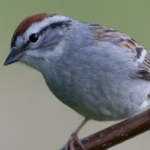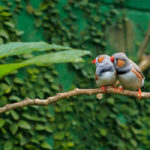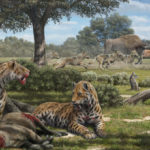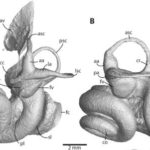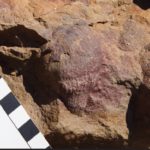Author
Vanderbilt National Fossil Day Event
Oct. 5, 2020—Vanderbilt National Fossil Day Event (https://www.youtube.com/watch?v=0LLoS5-2WB8) Note: This is a past event. You can watch the event at YouTube. Description: Vanderbilt’s Evolutionary Studies Initiative invites you to attend a virtual webinar. During the webinar, each paleontologists will discuss the fantastic creatures they study and how they became fascinated by fossils. The focus of the webinar...
New research on ‘endowment effect’ points to evolutionary roots of cognitive biases
Jun. 2, 2020—New research from may explain why we sometimes overvalue items we’ve acquired—to an irrational degree—irrespective of their market or sentimental value. This phenomenon is called the endowment effect, and researchers have long puzzled over why it occurs, and why the size of the effect can vary so much across items when it does. It’s important...
Vanderbilt lab develops app for analyzing crowd-sourced songbird recordings
Jun. 2, 2020—Amateur birders and citizen scientists will soon have a novel way to contribute to groundbreaking research. With a new app, created and shared by the team at laboratory of Nicole Creanza, Assistant Professor of Biological Sciences and @EvolutionVU member, researchers can better leverage crowdsourced fieldwork and audio recordings from bird enthusiasts to accelerate the progress...
New method reveals how differences in the genetic “instruction booklet” between humans and Neanderthals influenced traits
Oct. 8, 2019—When it comes to our differences from Neanderthals, most of what we know comes from comparing fossils. But fossils can only tell us about bones and not whole living organisms. That’s changing thanks to a new paper from graduate student Laura Colbran in the lab of Tony Capra, Associate Professor of Biological Sciences and @EvolutionVU...
High standards of female songbirds could be driving their mates to evolve
Sep. 8, 2019—Hearing longer love songs from songbirds in your backyard? Chalk it up to sexual preference – and high standards. New research on songbirds from graduate students Cristina Robinson and Kate Snyder in the lab of Nicole Creanza, Assistant Professor of Biological Sciences and Evolution@Vanderbilt member, suggests that females, who are choosing males with the most...
Rokas to lead budding cross-disciplinary collaboration on evolutionary studies
Aug. 15, 2019—The Vanderbilt Evolutionary Studies Initiative is now official! The Initiative seeks to position the university as a global leader in evolutionary studies by engaging a large group of scholars who share this research-based interest. The program will also provide students and the community multiple opportunities to learn about the role of evolutionary principles and approaches...
Intense look at La Brea Tar Pits explains why we have coyotes, not saber-toothed cats
Aug. 7, 2019—The La Brea Tar Pits are an one-of-a-kind fossil site in Los Angeles. The site contains fossils of predators that tried to eat horses, bison and camels stuck in the tar over the past 50,000 years and themselves became trapped, offering the best opportunity to understand Ice Age animals facing climate change. In the most...
Frog fungus fights back
Jul. 20, 2019—Amphibian populations have been declining around the world for more than 40 years. One culprit is the fungus B. dendrobatidis, which causes the disease chytridiomycosis. Although amphibians have robust immune defenses, the response to this pathogen is often ineffective, suggesting that the fungus somehow counters the immune response. Evolution@Vanderbilt member Louise Rollins-Smith, Professor of Pathology,...
Dolphin ancestor’s hearing was more like hoofed mammals than today’s sea creatures
Jul. 19, 2019—Evolution@Vanderbilt paleontologists Rachel A. Racicot, visiting scholar, and Simon A.F. Darroch, Assistant Professor of Earth and Environmental Sciences, and their collaborators are looking into the evolutionary origins of the whistles and squeaks that dolphins and porpoises make – part of the rare echolocation ability that allows them to effectively navigate their dark environment. The study...
Ediacaran dinner party featured plenty to eat, adequate sanitation, computer model shows
Jul. 18, 2019—Earth’s first dinner party wasn’t impressive, just a bunch of soft-bodied Ediacaran organisms sunk into sediment on the ocean floor, sharing in scraps of organic matter suspended in the water around them. But work from Evolution@Vanderbilt paleontologist Simon A.F. Darroch, assistant professor of earth and environmental sciences at Vanderbilt University, and Brandt M. Gibson, a...



